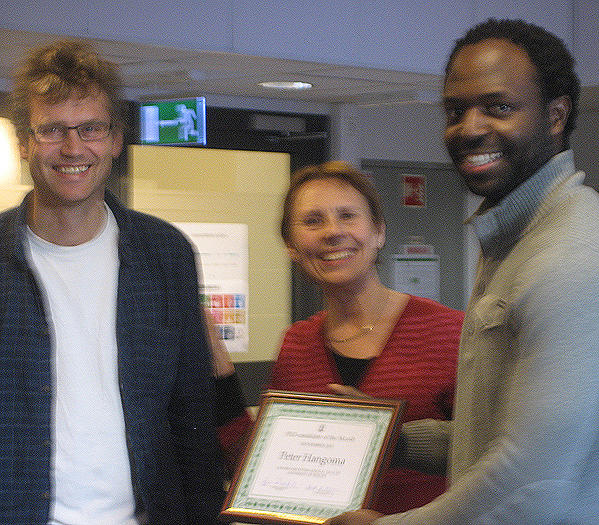CIH PhD November 2015: Peter Hangoma
November 2015: Peter Hangoma

Hovedinnhold
There are two main reasons for why Peter Hangoma is the candidate of the month.
1. Peter has organized monthly health economic workshops in the Global Health Priorities research group. This is a forum where PhD candidates present their work in progress in order to receive feedback on methodological and thematic challenges.
2. Peter organized two relay teams for the Knarvik Xtrem where people from all levels (Master, PhD and Post-Doc students, researchers and professors) joined for a common activity that is not only good for the working environment within CIH, but also for the health.
Students like Peter should be encouraged to keep up such an engagement for CIH.
Background information
Mr Hangoma holds a Vanderbilt Institute for Global Health and Fogarty International Center AIDS International Training and Research Program Traineeship to obtain a PhD in Health economics at the University of Bergen. Mr Hangoma currently holds a position as lecturerer at Department of Public Health, University of Zambia School of Medicine, with which CIH has had long term collaboration.
Topic of PhD and findings so far
Peter looks at the relationships between health shocks, health expenditure and household welfare in Zambia. By utilizing sophisticated econometric methods and four waves of the Living Conditions Monitoring Survey, he constructs a pseudo-panel to study his objectives. The findings so far indicate that health shocks influence on expenditure and long term household welfare, and that social welfare nets are important for the welfare in particular for the unemployed. In his second paper Peter finds that removal of user fees for health care in Zambia reduced expenditure, but data showed no evidence of improved financial protection.

